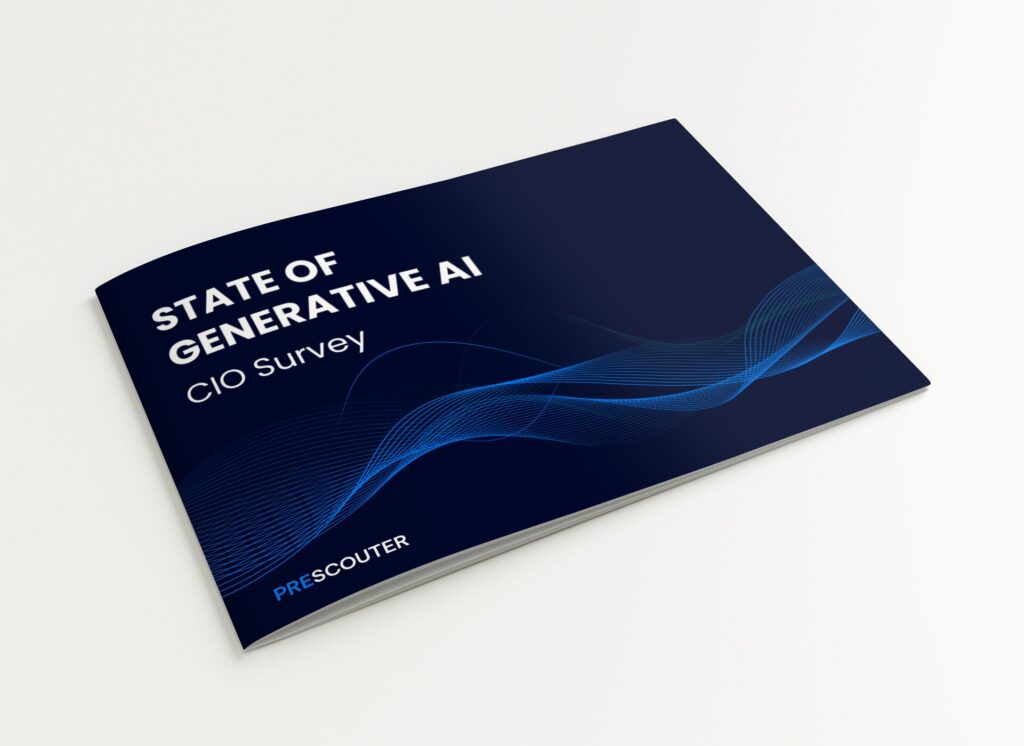The global market for generative AI is expected to grow by 46.47% from 2024 to 2030, reaching a volume of $356.10 billion by the end of the decade. This substantial growth is driven by its critical role in enabling organizations to streamline operations and enhance efficiency.
To gain insights into how generative AI impacts various organizations, PreScouter conducted a survey targeting chief information officers (CIOs) from different industries. This report examines the survey results and discusses the current applications, challenges, and future potential of generative AI.
Key benefits of generative AI for organizations:
This report indicates that generative AI boosts operational efficiency within organizations. By automating routine tasks, it allows employees to allocate more time to strategic projects. This increases productivity and also enhances job satisfaction among staff.
The use of AI in business provides substantial cost savings. It reduces the need for manual intervention, allowing companies to cut expenses. These savings are critical for reallocating resources to innovation and growth initiatives.
Generative AI promotes innovation by generating new ideas and solutions. It helps organizations stay competitive in a rapidly changing market. To discover more benefits of generative AI identified by the CIOs, access the complete report.
Major challenges in implementation:
A primary challenge is the lack of skilled talent to manage and deploy AI systems. This shortage makes it difficult to use the full potential of AI technologies. The report also points out the high costs of acquiring and maintaining advanced AI infrastructure.
Another major issue is ensuring data quality and accessibility. AI systems require vast amounts of high-quality data to function optimally. However, many organizations struggle with data silos and inconsistent data formats. The report emphasizes addressing these data issues to ensure successful AI implementation.
The report further identifies regulatory and ethical concerns as significant barriers. Compliance with data privacy laws and ethical considerations can complicate AI deployment. These challenges can lead to delays and increased costs in implementing AI solutions.
Future adoption of generative AI:
CIOs believe understanding the capabilities of generative AI is still at an early stage. Many of them are hesitant about making significant investments in this technology. They see potential but are wary of committing too soon.
The report suggests that generative AI is highly effective for certain tasks and encourages its cautious use. Employees are advised to verify the AI’s output as they remain accountable for their work’s quality. This approach is crucial for staying ahead of competitors.
Included in this report:
- The potential and role of generative AI in organizations
- Benefits of using generative AI for organizations
- Limitations and concerns for adopting AI systems
- Expert recommendations on the adoption of AI








